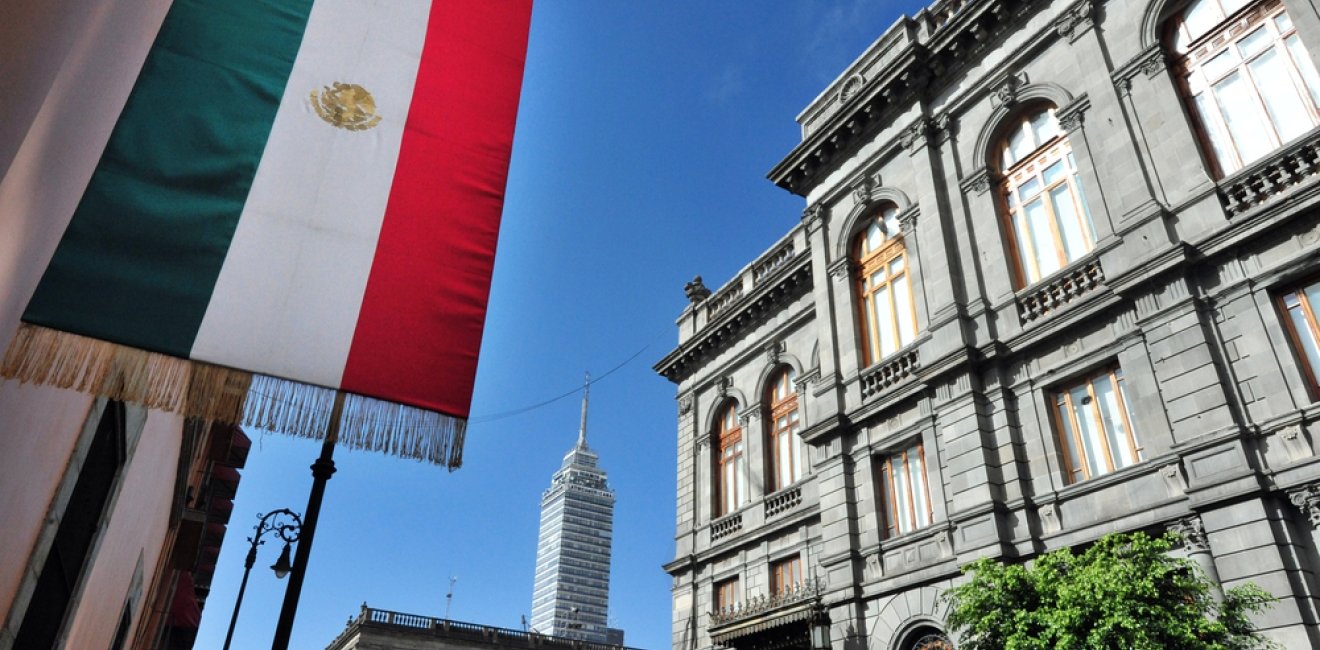“Political language is designed to […] give an appearance of solidity to pure wind”. - George Orwell
In Mexico, a stagnant political discourse clings to a state of things that has vanished. Government buildings still have names outside, i.e., National Commission of Human Rights, Energy Regulatory Commission, Attorney General Office, or Ministry of Education. These banners have formed a cognitive dissonance as the names are still used to discuss a reality that is gone. Political debates and analysis usually clog on how ‘institutions are in danger’ or on the country’s ‘democratic backsliding’, but these phrases do not grasp a situation that is far more perilous and irreversible: the country’s institutional machine room, the government's ‘levers and buttons’ no longer exist, and the carcass of bygone institutions will thwart and delay every political project in Mexico for years to come.
Mexico is no longer in a period of institutional weakening. The concealed and more threatening larger picture, and the most pervasive legacy of the current administration, is the destruction of Mexico’s whole institutional machine room. Eliminating institutions, arbitrarily cutting federal funding for essential public services, firing professional civil servants, appointing political sycophants, and explicitly instructing bureaucracies to stop carrying out their responsibilities have rendered most institutions inoperative. A few weeks before the biggest election in Mexico’s history, it is comprehensible that most of the attention is directed to who will be the next president. Comparing the contrasting political projects that the two leading candidates propose is hugely relevant, yet political discourse is missing the crucial fact that the government is hollow and rickety and that the next president, whoever this is, will have little to no tools to maneuver, react, and implement.
In a functioning democracy, or an aspiring one, institutions are the conduits of power. They provide the levers and switches that enable policy implementation and ensure the durability of national projects and strategies. Without these, personal power, no matter how strong, is insufficient and inadequate to supersede the lasting effects that only institutions can erect. Hence, a crucial responsibility of any democratic government is to inherit a relatively coherent and effective rule-based order and institutions that allow the next elected leaders to pursue their policy objectives. Leaving irresponsibility aside, the harm—and cruelty—lies in a government too anemic to operate and solve problems. The cliche ‘it’s easier to destroy than to build’ is accurate, and the ongoing institutional devastation will be awfully hard to reverse.
The process was not a miscalculation or a mistake, as it is often described. The institutional collapse was a deliberate political project to personalize power; thus, maintaining the rhetoric of a ‘populist’ or ‘an inept’ government is inadequate to understand the motivation behind the destruction. Needless to say, the process was hidden under a gift wrapping. Announced through the doublespeak of ‘republican austerity” came the attempt to rescind the ancient lesson that government institutions are essential barriers and hindrances because they depersonalize government functions. Institutions are guardrails for personal power, but for a political movement devoted to personalizing everything, institutions are kryptonite because, by definition, their function entails erasing last names from political actions.
In October, Mexico will have the first president sworn into office without a functioning government. There will be no ministry to implement education reform, no human rights commission to protect citizens, no police to persecute and investigate crime, fewer and worse airports and highways to sustain economic activity, no professional bureaucracy in the ministry of the economy to implement an economic policy, or no public trusts to respond to emergencies or natural disasters. What we mistakenly still refer to as ‘government’ has been reduced to three primary tasks: propaganda, persecution of political opponents, and clientelism; all other functions are subordinate to these purposes.
Frequently, vaudevilles such as political persecution or the use of the military for an unparalleled number of formerly civilian tasks, are used as smokescreens to give the impression of government presence. The militarization of the country is an essential component of the institutional collapse of the country despite being deceitfully featured as a new and more efficient extension of the state; but this is a mirage, a false choreography of government presence that will never fill or replace the hole created by the elimination of civil institutions. The incoming government will not inherit a set of crises (i.e., security, health, fiscal) but rather a broader collapse.
Any government needs tools for planning, executing policy, and responding to emergencies, and professional bureaucracies are mechanisms for both short-term reactions and long-term strategies that a Potemkin government cannot plan nor respond to. In a modern democracy, institutions de-personalize politics to block whims and capriciousness; they insert a dose of pause and reflection into human impulses. Whoever wants to understand Mexico’s politics should beware of the billboards outside government buildings.
Author


Mexico Institute
The Mexico Institute seeks to improve understanding, communication, and cooperation between Mexico and the United States by promoting original research, encouraging public discussion, and proposing policy options for enhancing the bilateral relationship. A binational Advisory Board, chaired by Luis Téllez and Earl Anthony Wayne, oversees the work of the Mexico Institute. Read more

Explore More
Browse Insights & Analysis
Greenland’s New Governing Coalition Signals Consensus

The Future of France's Far-Right Party

Ukrainian Issue in Polish Elections

